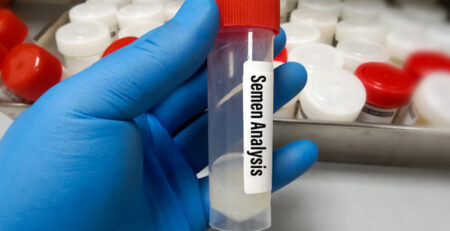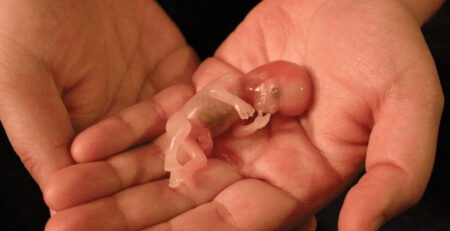A Guide to the IVF Process & Timeline
Are you worried about infertility and looking for a solution?
Want to start a family and learn about the in-vitro fertilisation (IVF) process?
For couples struggling with infertility, IVF at the best IVF centre in Delhi can be a ray of hope. IVF is a widely accepted fertility treatment that helps couples achieve their dream of starting a family.
But what is IVF, and how does it work? If you are considering fertilisation treatment, it is essential to understand the process and timeline. The following article will guide you through the IVF process step-by-step and help you with more information, like the treatment’s cost from renowned gynaecologist and infertility specialist Dr Rhythm Gupta.
What is In-Vitro Fertilisation?
In-Vitro fertilisation, or IVF, has been around for decades. It has been perfected over the years with more trained specialists in the field.
IVF is a type of assisted reproductive technology (ART) that involves the fertilisation of eggs and sperm outside the body. In the best IVF centre in Delhi, eggs are extracted from the woman’s ovaries and fertilised with sperm in a clean laboratory. Once the embryos are formed, they are transferred to the woman’s uterus for implantation.
Medications help stimulate the ovaries to produce multiple follicles containing eggs, which are then removed from the body in a process known as egg retrieval. Chances of more than one embryo forming are common. A full IVF cycle takes about three weeks. Sometimes these steps are divided into sections depending on the patient’s requirements and medical history. In such cases, it can make the timeline of the process longer.
It’s important to note that the cost of IVF should not be the only factor you consider when choosing a fertility clinic. Choosing a clinic with experienced and knowledgeable doctors, state-of-the-art equipment, and a proven track record of success is essential. Dr Rhythm Gupta is an experienced IVF specialist who has helped many couples achieve their dream of having a child at her best IVF centre in Delhi, Excel IVF. She is committed to providing personalised care and using the latest technology to ensure the best possible outcomes for her patients.
IVF can be costly, but it is often the best option for couples struggling with infertility. Let us understand more about the cost of IVF treatment.
What Is The Cost of IVF Treatment in Delhi?
The cost of IVF in India varies depending on the clinic and location. On average, the price of a single IVF cycle in India is between Rs. 1,50,000 to Rs. 2,50,000. This cost includes consultations, medications, and the IVF procedure. Additional charges may be incurred for additional procedures such as embryo freezing, and genetic testing.
In order to help you make a better decision, we list the various factors contributing to the cost of IVF treatment. These are the factors:
1- Location of the clinic
The cost of the fertilisation procedure depends from city to city and within cities as well. Well-equipped IVF centres and the availability of renowned fertility doctors with high success rates have their practice established in major cities like Delhi. This is why many couples seeking fertility options choose the best IVF centres in Delhi.
2- Age
There isn’t a standard age for IVF. However, an experienced IVF specialist like Dr Rhythm Gupta can ensure success rates with patients in advanced ages as well.
3- Number of Cycles
It is not guaranteed that eggs will implant in the first round of IVF. You may need more IVF cycles to successfully implant the embryos if it fails. In such cases, IVF treatment costs increase with the number of cycles.
4- Cost of Medication and Supporting Treatment
Depending on the patient’s medical profile, medications are prescribed, which also play a major role in the cost of the treatment. Several underlying causes may hinder the effectiveness of IVF, so your doctor should prioritise the treatment of that first.
5- Cost of Donor Eggs or Sperm
The quality and type of donor eggs or sperm in an IVF treatment can add to the cost of the overall treatment. Consult your doctor for the best options.
Now that we know about the factors that influence the cost of IVF treatment in India let us move on to the procedure and timeline of IVF.
Process and Timeline of IVF
The IVF process can take anywhere from 4-6 weeks, depending on the individual case. Here is a timeline of the IVF process:
Day 1: Start of the menstrual cycle
Day 2: Medication of fertility drugs begins
Day 5-7: Ultrasound and blood tests to monitor progress
Day 11-13: Egg retrieval
Day 13-15: Embryo culture
Day 15-17: Embryo transfer
Day 30: Pregnancy test
We mention the steps commonly followed in the procedure at any best IVF centre in Delhi:
Step 1: Consultation and Testing
In the first step of the IVF process, schedule a consultation with an experienced fertility specialist. During this consultation, the doctor will review your medical history, perform a physical examination, and conduct various tests to assess your fertility. Tests may include blood tests to measure hormone levels, ultrasound scans to evaluate the ovaries and uterus, and semen analysis to check the sperm count and motility.
Step 2: Ovarian Stimulation
Once preliminary testing is complete; the next step is ovarian stimulation. During this phase, women take fertility medications to encourage the ovaries to produce multiple eggs, increasing the chances of success during fertilisation. At the best IVF centre in Delhi, the doctor will monitor the female patient’s hormone levels along with periodic ultrasound scans to determine when the eggs are mature and ready for retrieval.
Step 3: Egg Retrieval
Egg retrieval is minimally invasive that typically takes place in an outpatient setting. The doctor will use a specialised needle to extract the eggs from the ovaries during the procedure. Patients are typically under mild sedation or anaesthesia. The average duration of egg retrieval, when done by an expert surgeon, takes about 15-20 minutes.
Step 4: Fertilisation and Embryo Culture
After egg retrieval, the eggs are fertilised with sperm in a laboratory. The fertilised eggs, or embryos, are then cultured for several days until they reach a certain stage of development. Experienced Doctors like Dr Rhythm Gupta will determine the best time to transfer the embryos to the uterus based on the woman’s hormone levels and the embryo’s development.
Step 5: Embryo Transfer
The final step of the IVF process is the transfer of the embryos to the woman’s uterus. This is usually done 3-5 days after fertilisation. The embryos are transferred using a thin tube inserted through the cervix. The woman is generally advised to rest for a few days after the procedure to increase the chances of successful implantation.

Conclusion
IVF is an effective treatment option for couples struggling with infertility. You can make an informed decision with the right information on the cost and how it is done.
Choosing the best IVF centre in Delhi with an experienced specialist like Dr Rhythm Gupta can help increase your chances of success and make the cost of IVF more manageable. If you’re struggling with infertility, don’t give up hope. With the right support and treatment, you can achieve your dream of starting a family soon.












